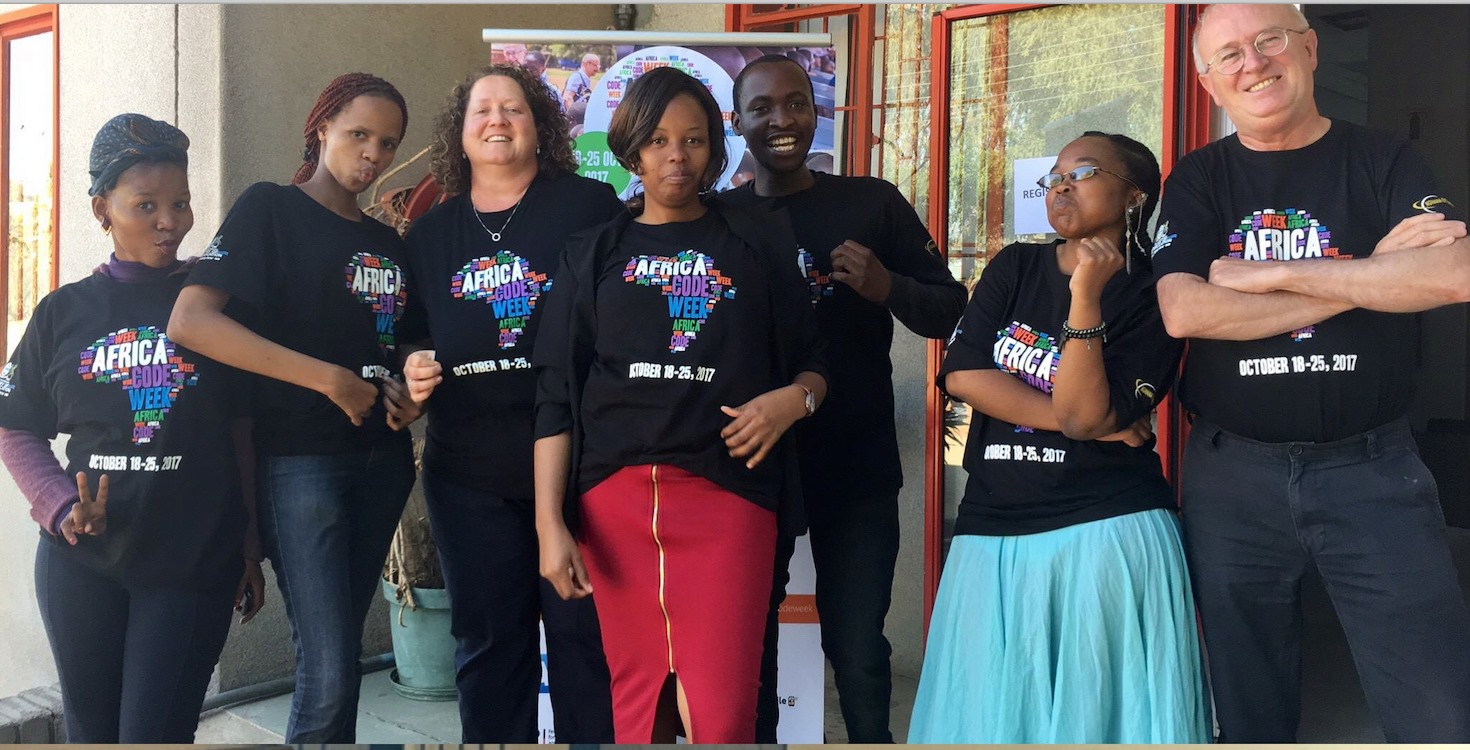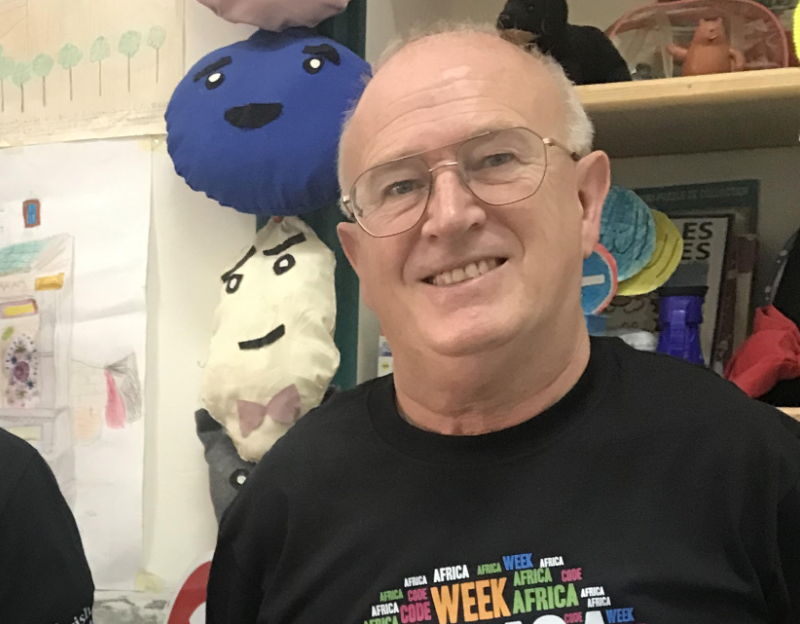
A Science and Technology learning advocate, with extensive experience in delivering educational programmes in Ireland and abroad, Brendan Smith is Education and Public Engagement Officer of the Insight SFI Research Centre for Data Analytics at the University of Galway.
He works with a wide range of communities and educational groups to empower them in exploiting the potential of digital technologies for learning, heritage, environmental, social and economic purposes.
Brendan is also a long-time committee member of the Galway Science and Technology Forum which organises the largest annual science festival in Ireland; co-founder of the Computer and Communications Museum of Ireland and co-founder of Coderdojo Galway city. In 2015 he was appointed the first lead mentor and course content developer of the Africa Code Week coordinated by SAP and supported by UNHCR and Irish Aid, which represents the largest digital literacy initiative ever organised on the African continent.
He is known for his many community and environmental projects, including Terryland Forest Park, Ireland’s largest community-driven urban forest programme; promoting local heritage preservation initiatives; Greenway cycling advocacy; and in providing educational, health and social programmes to socially excluded groups and in coordinating the Galway National Park City initiative with Irish President Michael D. Higgins, as its patron.
Most graduates will tell you that their time at university was very special, unique and influenced the direction of their future lives. I am no different. The campus of my youth shaped me greatly and made me what I am today. My subsequent life in education, science, technology, international development, social justice, environmentalism, hospitality and community empowerment grew out of my experiences as a student at what was then UCG (University College Galway). It also gave me my life-long partner(Cepta).
While my name is Brendan, I‘m most commonly known as ‘Speedie’, a nickname that I was given in my early days at university. It came from the fact that I tended to be simultaneously involved in multiple student activities. From day one, I fell in love with the campus and happily immersed myself in college life. So after lectures, I seemed to have found myself running from one meeting to the next, from taking part in a student union protest, to organising a History Society lecture or a conference or a dress dance, to attending an editorial student newspaper get together.
The Ireland of my childhood, though it had a strong community/’Meitheal’ ethos and other positive attributes, suffered from poverty and high emigration. It was often dogmatic, socially conservative and where women were treated as second class citizens. Up until 1973, women automatically lost their jobs in the civil service, state hospitals, universities and schools when they got married.
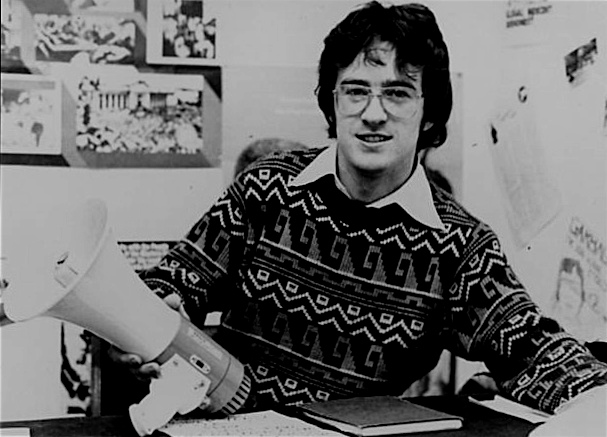
But I came to Galway City at a time when Ireland was experiencing unprecedented change. Like so many of my contemporaries at UCG at the time, I was the first in my family to attend a third level college, the result of the educational reforms in the late 1960s when second level education was made free and local government grants were awarded for the first time to those from less wealthy backgrounds to experience higher education and support the country moving away from subsistence farming to one that was identified by immigration, urban and high tech.
My generation arrived in Galway not knowing what to expect. But we soon discovered to our great surprise and joy that it was a city where young people were in the majority! The arrival of the American corporations such as Digital Equipment Corporation (DEC), Thermo King and Northern Telecom/Electric, the unprecedented expansion of the local hospitals and of UCG as well as the opening of the Regional Technical College (now ATU) transformed what was previously a relatively quiet rural town into a vibrant cosmopolitan city where young people found they could and did positively influence and shape the urban landscape on so many levels including the arts, music, entertainment, business, sport, journalism, science and politics.
Internationally and nationally, the world was experiencing radical economic, scientific, technological, religious, social, and political change spearheaded by youthful idealism and a search for a more benign equitable world. The anti-war movement and the beginnings of the environmental, feminist and LGBT campaigns in the United States, the rise of both the Civil Rights movements and Irish republicanism as reactions against the openly sectarian nature of Northern Ireland, the popular revolutions across Asia, Latin America, eastern Europe and Africa against totalitarianism, colonialism and racism impacted on many of us on a campus that was a wonderful melting pot of peoples and diverse views. You could end up having chats over coffee, debates in lecture halls or arguments at society meetings with avant-garde artists, hippies, engineering students from Africa, rock musicians, progressive clerics, army officers, feminists, lawyers, ‘born again Christians’ (Campus Crusade), Bahais, Buddhists, science researchers, sports stars and left wingers of forty shades of red (Trotskyites, Maoists, Revolutionary Struggle, Christian Socialists…).
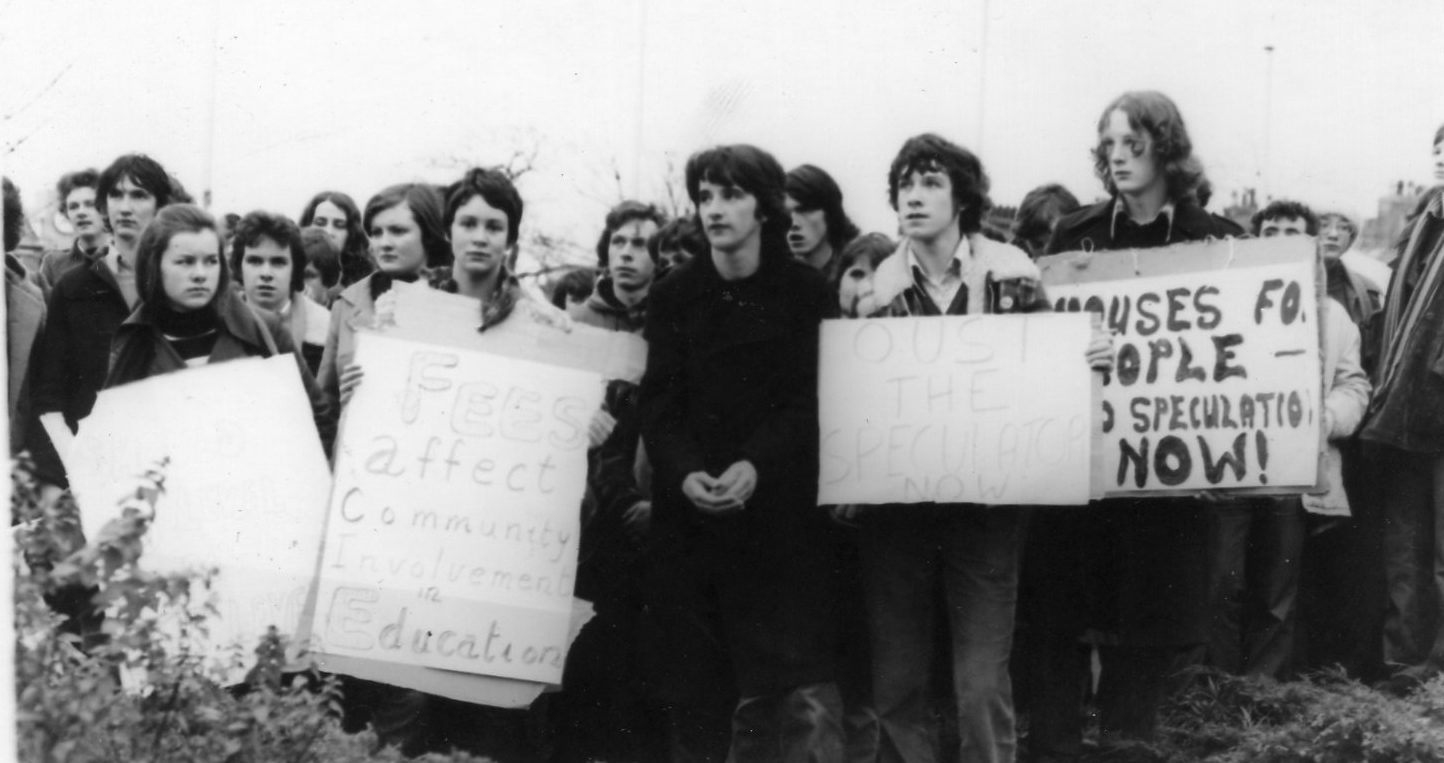
As an advocate of ‘Liberation Theology’, I particularly enjoyed my late night talks with Franciscans friars in their monastic dining hall in what is now known as ‘Friars’. Whilst lots of students did get involved in campus sport and formal academic endeavours, some of us instead gravitated towards more ideological pursuits. As well as being influenced by student union activists such as Eamon Gilmore and Mike Jennings, we were encouraged by lecturers such as Michael D Higgins, Pete Smith, Emer Colleran, Gearóid Ó Tuathaigh, Eoin Burke, Brian Leonard, Pat Sheeran, Breandán Mac Aodha and Hubert McDermott to think outside the box and/or to question the status quo.
I got involved in many political and social campaigns at the time, spent two years in the Students’ Union first as Vice President for Welfare/Education and later in 1980 as President. Issues such as divorce, contraception, abortion, gay rights, women’s rights, workers’ rights, postgrad rights, social discrimination, education for all, anti-apartheid, imperialism, elitism… were fiercely discussed and campaigned on. We would unite with manual college staff and communities outside the campus to demand better pay and affordable housing, took part in environmental rallies nationwide such as the anti-nuclear power plant festivals at Carnsore Point in Wexford whilst also marching in international solidarity with oppressed peoples everywhere. Some of us were involved in supporting the republican hunger strikers in the North demanding political recognition as prisoners.
Through mass marches, sit-ins and other forms of direct actions but most importantly through winning the right through the Irish courts to have students registered in their college constituency (Ballot Box Campaign), we secured unprecedented success under our “Education is a Right not a Privilege” rallying call with the largest increases in grants monies, the expansion of the means level and the ending of the 4 honours requirement for the technological sector. That was the summer of 1981 and interestingly in the general election of that June was when Michael D. Higgins was first elected to Dáil Éireann.
Yet even though some of us were highly politicised, nevertheless we studied hard (honest!) and enjoyed the city’s fun night life. Thursday night was the only night of the week when we could afford to socialise. All political arguments were set aside as we would pack the bars in the city centre and later take the bus to Salthill to enjoy dancing in clubs such as Rivellinos, the International and the Beach. Thanks to the efforts of Ollie Jennings and Padraic Boran, College (Rag) Week became a magnet for students from all over Ireland to come to Galway as U2, Boomtown Rats, Undertones and other top bands rocked Leisureland night after night.
But even in this period of partying there was a strong egalitarian dimension in evidence as “Social Action Week” ran in parallel with College Week when students would support and volunteer in helping those that were economically or socially disadvantaged. We would also organise our own visits to secondary schools to talk to teenagers about life on campus and the academic/career opportunities available. This youthful social concern was much in evidence in the rest of the year also with students regularly involved in programmes such as Simon Community’s nightly soup kitchen runs to the homeless.
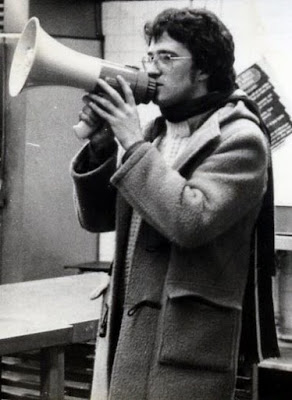
Another fundamental part of student life in this period was getting a job during the holidays in order to make enough money to afford to stay at college. Many found work in Dublin, London and Munich. But the most exciting opportunity was presented by the J1 visa programme which allowed Irish students to travel for the first time in large numbers to the United States and to obtain employment as porters, waiters and cleaners in Atlantic City, Montauk, Manhattan, Chicago and other exotic destinations.
The 1970s were a gateway to exploring new cultures. ‘Interrail’ was launched in 1972 and enabled youth travellers to explore other countries by train with just one rail pass, most countries across Europe, even those on the other side of the ‘Iron Curtain’. This political-military barrier separated an American-orientated Western Europe from a Soviet-dominated Eastern Europe, two armed nuclear camps where global Armageddon could have easily started. Rail travel allowed for the first time young Europeans of different nationalities to move easily between countries, and to stay together in youth hostels, sharing meals, drinks and amiable chat around the same table. As a result, we found that we had so much in common, the problems we had were so similar, and our cultural differences were mainly ones to celebrate. In my opinion, this is where a sense of a modern European identity with its democratic egalitarian values was born.
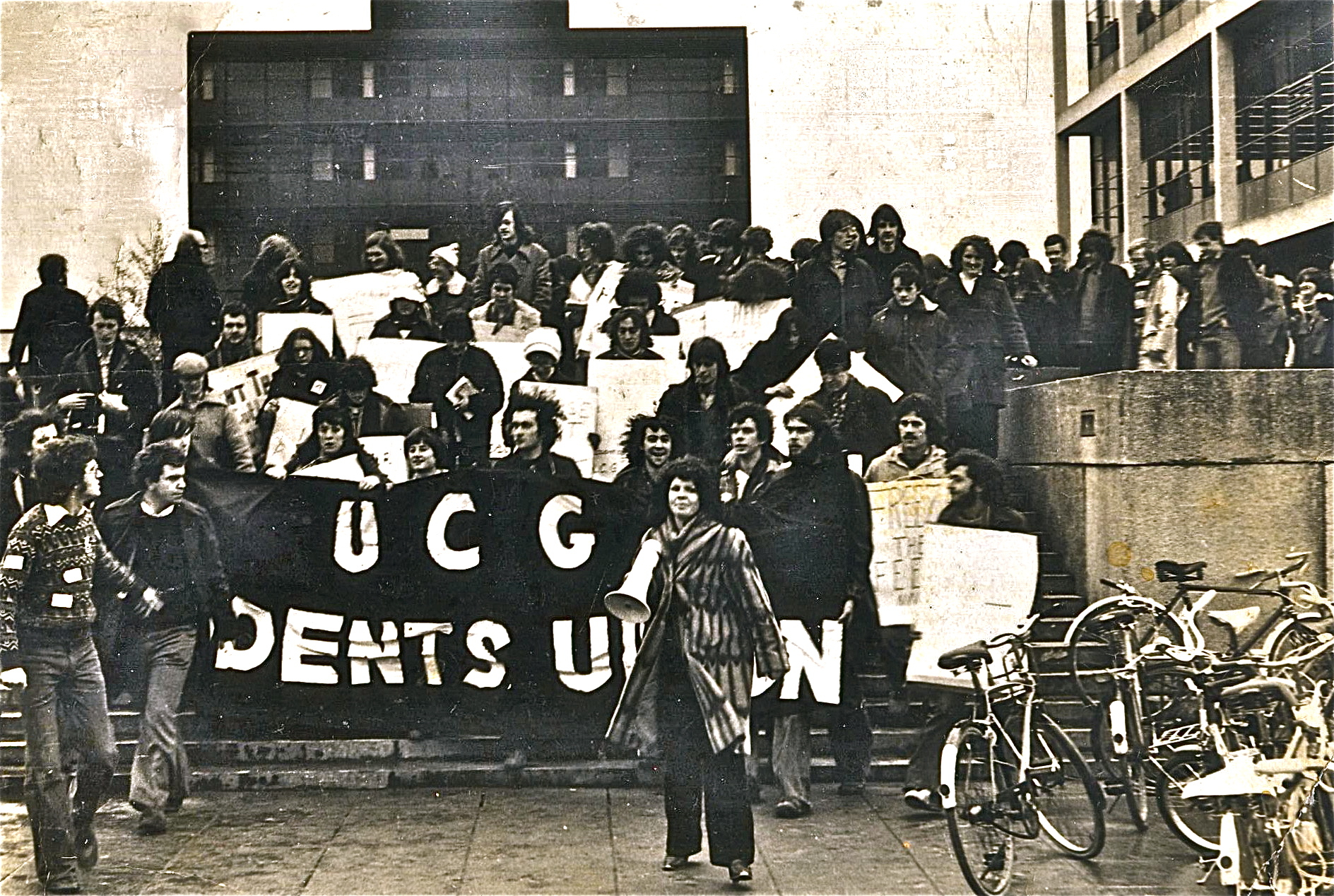
Awards
In May 2019, Brendan was bestowed with the inaugural Cairdeas (Friendship) Award by the American Chamber of Commerce of Ireland for his work in promoting technology amongst young people. He was the recipient of the NUI Galway President
Award for Societal Impact in 2018; was presented with the Galway City Mayoral Volunteer of the Year Award in 2017, and has twice been honoured with the Galway
Science Person of the Year Award.
